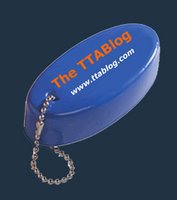The Leathernecks Motorcycle Club was thwarted in its attempt to register the collective membership mark
LEATHERNECKS in the design form shown immediately below. The Board found that the mark, which indicates membership in a motorcycle club, falsely suggests a connection with the United States Marine Corps in violation of Section 2(a) of the Trademark Act.
In re Leathernecks Motorcycle Club International, Inc., 2024 USPQ2d 1023 (TTAB 2024) [precedential] (Opinion by Judge Cindy B. Greenbaum).
Section 2(a), in pertinent part, prohibits registration of “matter which may … falsely suggest a connection with persons, living or dead, institutions, beliefs, or national symbols." The U.S. government, as well as government agencies and instrumentalities, are considered juristic persons or institutions within the meaning of Section 2(a). See Section 45 of the Act. The USMC, a service within the U.S. Department of the Navy, "is one such juristic person or institution." See In re Cotter & Co., 1985 TTAB LEXIS 50, at *8 (T.T.A.B. 1985) (finding the United States Military Academy is an institution and West Point "has come to be solely associated with and points uniquely to the United States Military Academy”).
In determining whether the subject mark runs afoul of Section 2(a), the Board applied the Notre Dame test, requiring the USPTO to prove that:
- the term “Leathernecks” in Applicant’s mark is the same as, or a close approximation of, the USMC’s name or identity, as previously used by or identified with the USMC:
- the term “Leathernecks” in Applicant’s mark would be recognized as such because it points uniquely and unmistakably to the USMC;
- the USMC is not connected to or otherwise affiliated with Applicant; and
- the USMC is of sufficient fame or reputation that, when the term “Leathernecks” is used to indicate membership in a motorcycle club, a connection with the USMC would be presumed.
The Club argued that Section 2(a) does not apply to collective membership marks but the Board disagreed. Section 4 of the Act, which provides for registration of collective marks, states that "Applications and procedures under this section shall conform as nearly as practicable to those prescribed for the registration of trademarks." Nothing in Section 4 exempts collective membership marks from Section 2(a). The Board pointed to Section 1304.03 of the TMEP [not the law - ed.], which states that an application for registration of a collective service mark "must meet all the criteria for registration of other marks on the Principal Register."
Turning to the elements of the Notre Dame test, the Club did not contest the first element, conceding that "Leatherneck" is a nickname for a member of the USMC.
Examining Attorney Kevon L. Chisolm submitted a dictionary definition and a Wikipedia entry for the term "leatherneck," along with various other items of evidence to show that the word "leathernecks" points uniquely and unmistakably to the USMC. The Club argued that "leatherneck" is also a slang term referring to the British Royal Marines, submitted several third-party registrations for Leatherneck marks, and asserted that many companies unrelated to the USMC are using the Leatherneck name.
The Board pointed out, however, that "[t]he requirement that 'Leathernecks' point uniquely and unmistakably to the USMC does not mean 'Leathernecks' must be exclusively used to identify the USMC. Jackson Int’l Trading, 2012 TTAB LEXIS 246, at *6; Hornby v. TJX Cos., 2008 TTAB LEXIS 19, at *55 (TTAB 2008)."
Rather, the question is whether, as used to identify membership in Applicant’s motorcycle club, the relevant public would view the term “Leathernecks” as pointing only to the USMC, or whether they would perceive it to have a different meaning.
For a collective membership mark, the relevant public comprises the persons for whose benefit the mark is displayed: here, "at a minimum, current and prospective members of Applicant, including individuals and entities associated with the U.S. military." The Board found that "the relevant public would understand the term 'Leathernecks' to point uniquely and unmistakably to the USMC, especially when all of Applicant’s present members 'are active duty or honorably discharged U.S. Marines, or U.S. Navy Corpsman who have served with the Fleet Marine Force."
The Club's evidence of third-party use and registration was not probative because they involved goods and services unrelated to a motorcycle club. See, for example, Hornby, 2008 TTAB LEXIS 19, at *55-56 (finding evidence of third-party registrations of the term “TWIGGY” for goods unrelated to children’s clothing had “no probative value”).
As to the third Notre Dame element, The Club did not claim any connection or affiliation with the USMC. As to the fourth, the Board found that "the USMC is of sufficient fame or reputation that, when the term 'Leathernecks' in Applicant’s mark is used to indicate membership in a motorcycle club, a connection with the USMC would be presumed."
First, Applicant’s name, “Leathernecks,” is a nickname adopted by the USMC and recognized by the relevant public to refer to the USMC. Second, Applicant’s members affix the mark to their vests, above other USMC indicia (the EGA, which Applicant refers to as the “Semper Fi” banner, and the letters “USMC”). Third, Applicant’s display of the collective membership mark in the colors gold and scarlet closely resembles the marks in ten registrations with the USMC listed as the owner where the marks are for gold and red rocker patches with other U.S. Marine indicia, all of which are meant to be affixed to clothing (including vests and jackets worn by motorcycle clubs). And fourth, Applicant’s entire membership presently consists of active duty and honorably discharged U.S. Marines and U.S. Navy Corpsman. Indeed, creating a connection with the USMC appears to be Applicant’s intent in adopting “Leathernecks” as the name of its club.
The four horsemen elements of the Notre Dame test having been met, the Board affirmed the Section 2(a) refusal.
Read comments and post your comment here.
TTABlogger comment: WYHA?
Text Copyright John L. Welch 2024.
































